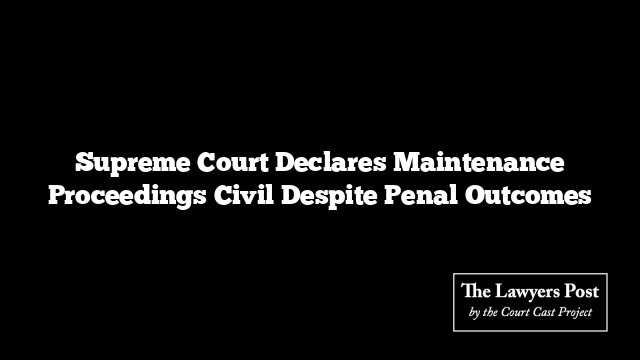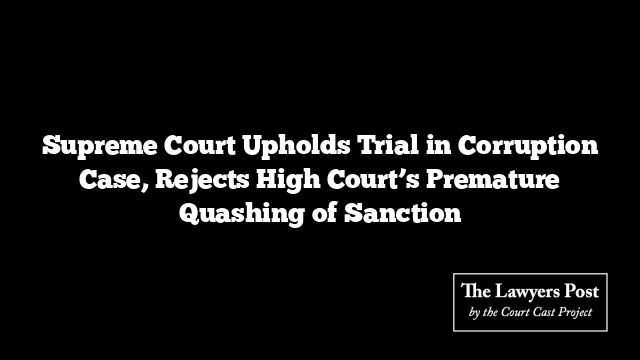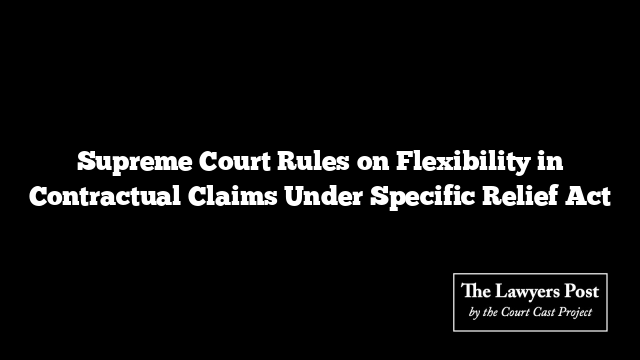In a significant clarification, the Supreme Court has ruled that maintenance proceedings under Section 125 of the Criminal Procedure Code (CrPC) are fundamentally civil in nature, despite potential penal consequences for non-compliance. The Court emphasized that their placement within criminal law does not alter their core character.
The bench, led by the Chief Justice of India Sanjiv Khanna and Justice Sanjay Kumar, observed, “Even if non-compliance with an order for payment of maintenance entails penal consequences, such proceedings would not transform into criminal proceedings. The nomenclature under the CrPC is not definitive regarding their nature.”
This statement arose during deliberations in a case addressing whether a wife’s refusal to comply with a restitution of conjugal rights decree affects her right to maintenance. The Court ruled that valid grounds for non-compliance would not disqualify her claim under Section 125.
The Court referenced the 1969 Law Commission report, which highlighted the inclusion of maintenance provisions in criminal law to ensure a swift and effective remedy. Criminal courts were deemed better suited for enforcement, avoiding the complexities of prolonged civil litigation.
A three-judge bench in the 1963 Jagir Kaur v. Jaswant Singh case was also cited, affirming that Section 488 of the CrPC of 1898—the predecessor to Section 125—was intended as a summary civil remedy for vulnerable individuals, offering a direct path to justice.
The ruling reinforces the civil essence of maintenance claims while underlining their expedited framework within criminal procedure, designed to support individuals in distress without unnecessary legal delays.





